10 takeaways from my first 100 days as Karbon’s CEO

Mary Delaney
CEO, Karbon
It’s been 100 days since I took on the role of CEO at Karbon—and what a 100 days it’s been!
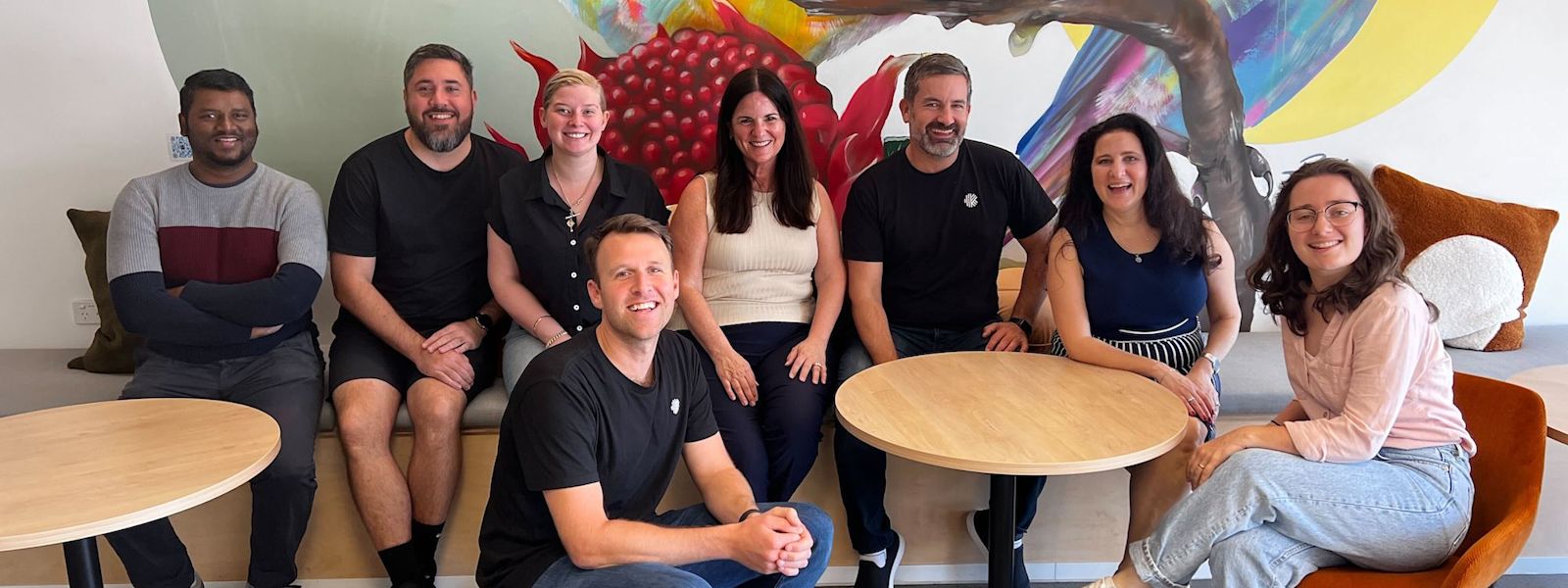
In just a few short months, I’ve met dozens of Karbon customers from a wide range of backgrounds—learning how they use our product and gathering their feedback. I also spent two weeks in Australia with our engineering team, diving into our tech stack and listening to their ideas on where we can improve.
Back stateside, members of the Karbon team joined me for barbecues in the backyard of my home in Chicago to reflect on our past successes and where we’re headed next.
Here are the top lessons I’ve learned these past few months and how I plan to apply these learnings to guide Karbon in its next phase of growth.
1. Our customers are our greatest resource
The day I officially introduced myself to the Karbon community, I received an incredibly warm reception from our customers. Aside from welcoming me, they reached out to offer everything from insights into the industry to ideas for our product.
Connecting with customers is my oxygen. The beauty of having such a strong product is hearing so many affirming stories about the impact we make not just on our customers’ firms, but on their lives.
Of course, they’ve also shared constructive feedback. I’ve made it part of my mission to really listen in these instances and stress to our customers that they can reach out to me directly with their ideas and/or concerns. I strongly believe in an open door policy, and in this remote world, my open door is my direct phone number.
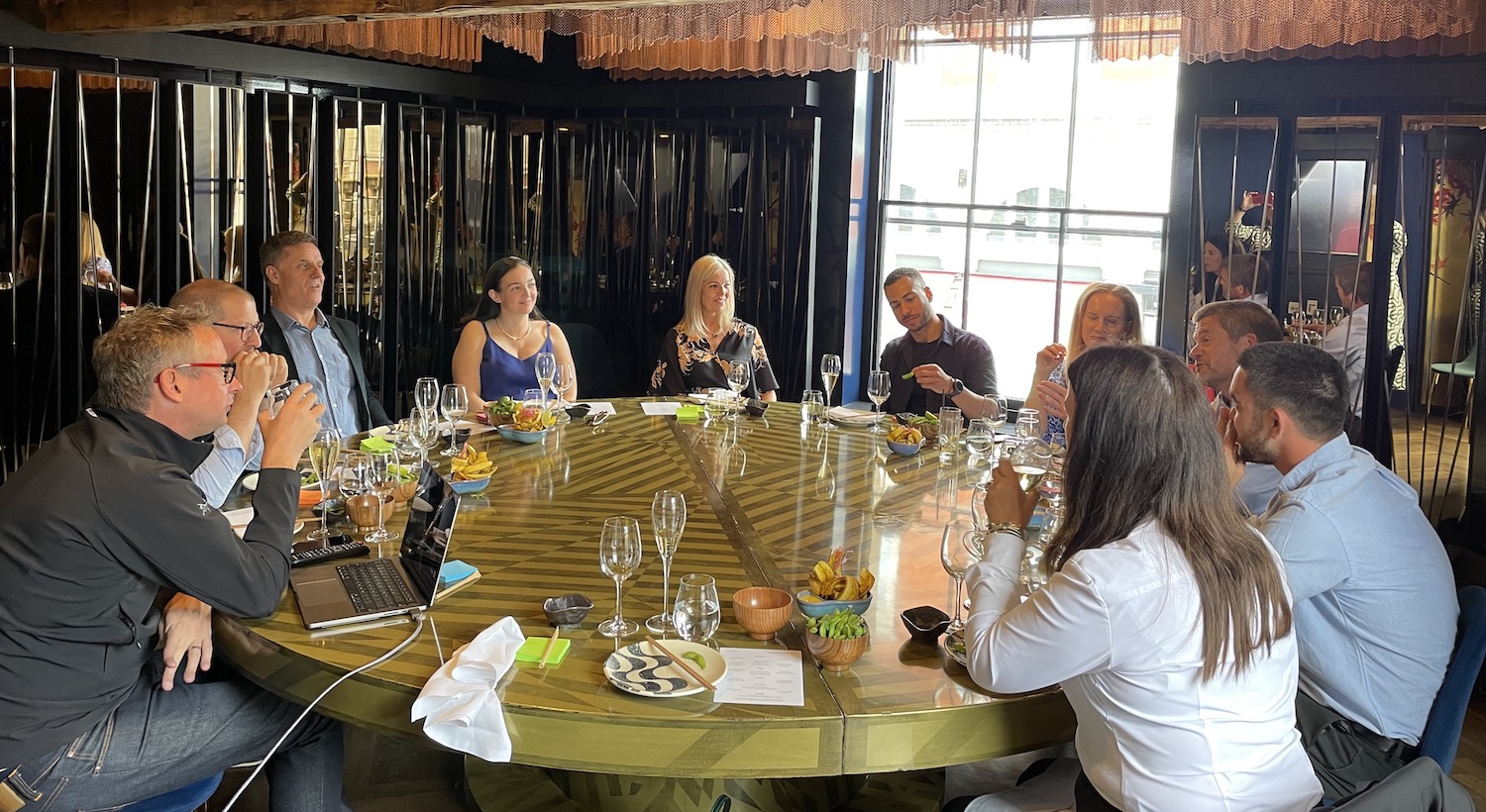
I love having the opportunity to sit with our customers and hear directly from them.
I don’t plan on stopping these efforts in forming personal connections with our customers anytime soon (or ever). Hearing their personal experiences and feedback is essential. I plan to preserve plenty of time in my work days to continue listening to and learning from our customers. I want them to see me—and Karbon—as the first place they go for help when facing a challenge.
2. The best place to be is where your people are
I use Zoom from morning to night, but there’s nothing like sharing an actual room with your team, looking each other in the eye, discussing what we’re doing now, and exploring how we can do better.
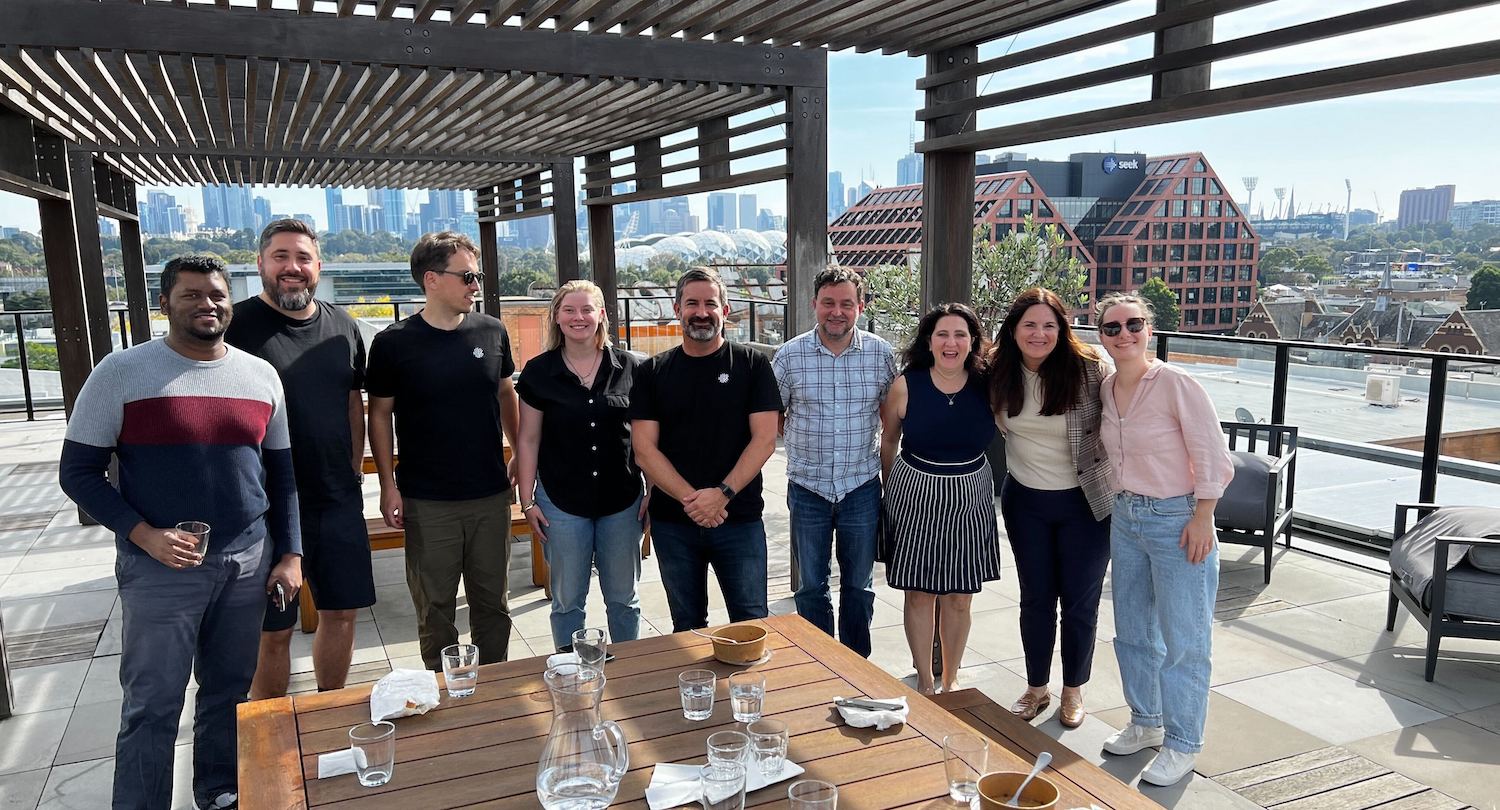
Meeting some of the team in Melbourne, Australia (who gave me a quick lesson on the iconic Melbourne city skyline behind us).
In the past 100 days, I’ve spent time in four different cities in the US and Australia, New Zealand, and the UK. At our offices around the world, and around the fire pit in my backyard in Chicago, groups of us have come together to brainstorm how we grow and continue to serve the accounting industry. Spending time together in person creates a sense of trust that helps us discuss and ideate freely.
3. Culture really matters
Culture is like a plant: if you don’t feed it, it dies. It’s not just about being on Zoom or out in the field—it’s about really understanding what’s important to your employees and then delivering on efforts that address their needs.
I’ve looked closely at how we communicate, asking the question: are we using the right vehicle and the right frequency to deliver what our employees want and need? I also assessed our meetings. I’ve eliminated some, kept others, and changed agendas accordingly.
I believe it’s important to bring your team along with you on a company’s growth journey. People need something to believe in, and they need to understand their role along the way. As a result, I start every internal meeting by discussing Karbon’s vision, mission, and strategy to make sure everyone is starting from the same place.
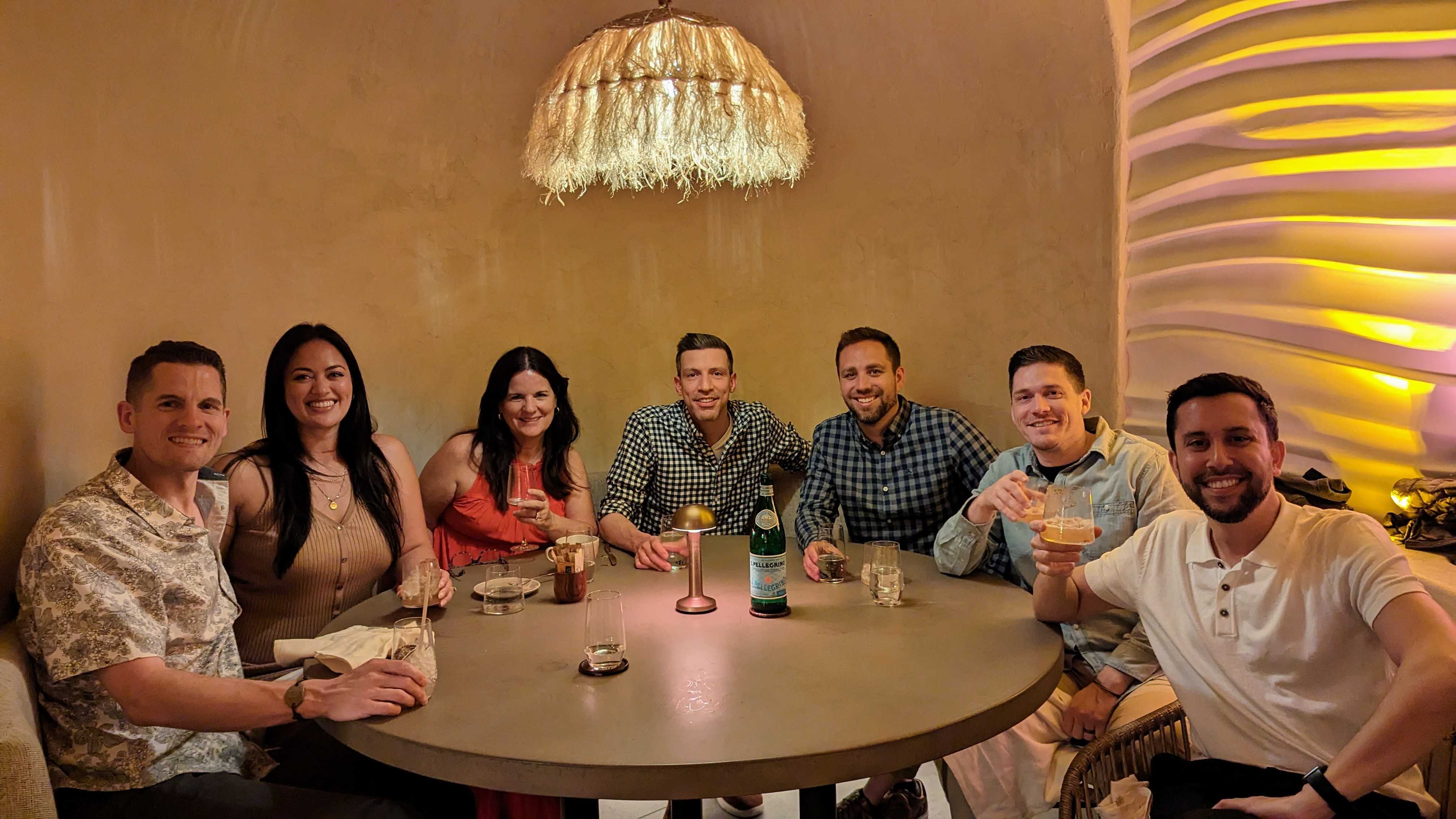
I was thrilled to have some of our team in my hometown of Chicago recently.
4. Be accessible to all of your people
As a leader, I need to be able to hear ideas and feedback from every corner of the company. In addition to visiting our offices around the world, I’ve made some changes to our leadership structure and interaction cadence.
I expanded our senior leadership team (SLT) to bring in voices from sales, marketing, and customer. When I was the Chief Revenue Officer before taking on the CEO role, I represented these voices, and I believe it’s important to have a direct line to these areas of the business. The SLT also meets monthly with the broader leadership team, giving insight into key strategic areas.
I also re-onboarded my whole team—even those who were already my direct reports before I stepped into the CEO role. It was great to get a fresh start and, as a result, I have a better understanding of each person’s goals and how I can help their teams succeed.
5. The accounting industry is a community with continued transformation and growth ahead
Accountants are an energizing group of people. They’re all entrepreneurs: they risked everything to start a business, and I love hearing their stories.
I’m always amazed to see how willing accountants are to help one another. In three decades working in business, I’ve seen very few industries where competitors share trade secrets. But accountants know that there’s more than enough business to go around. It’s heartwarming to see how they work together to make the industry better.
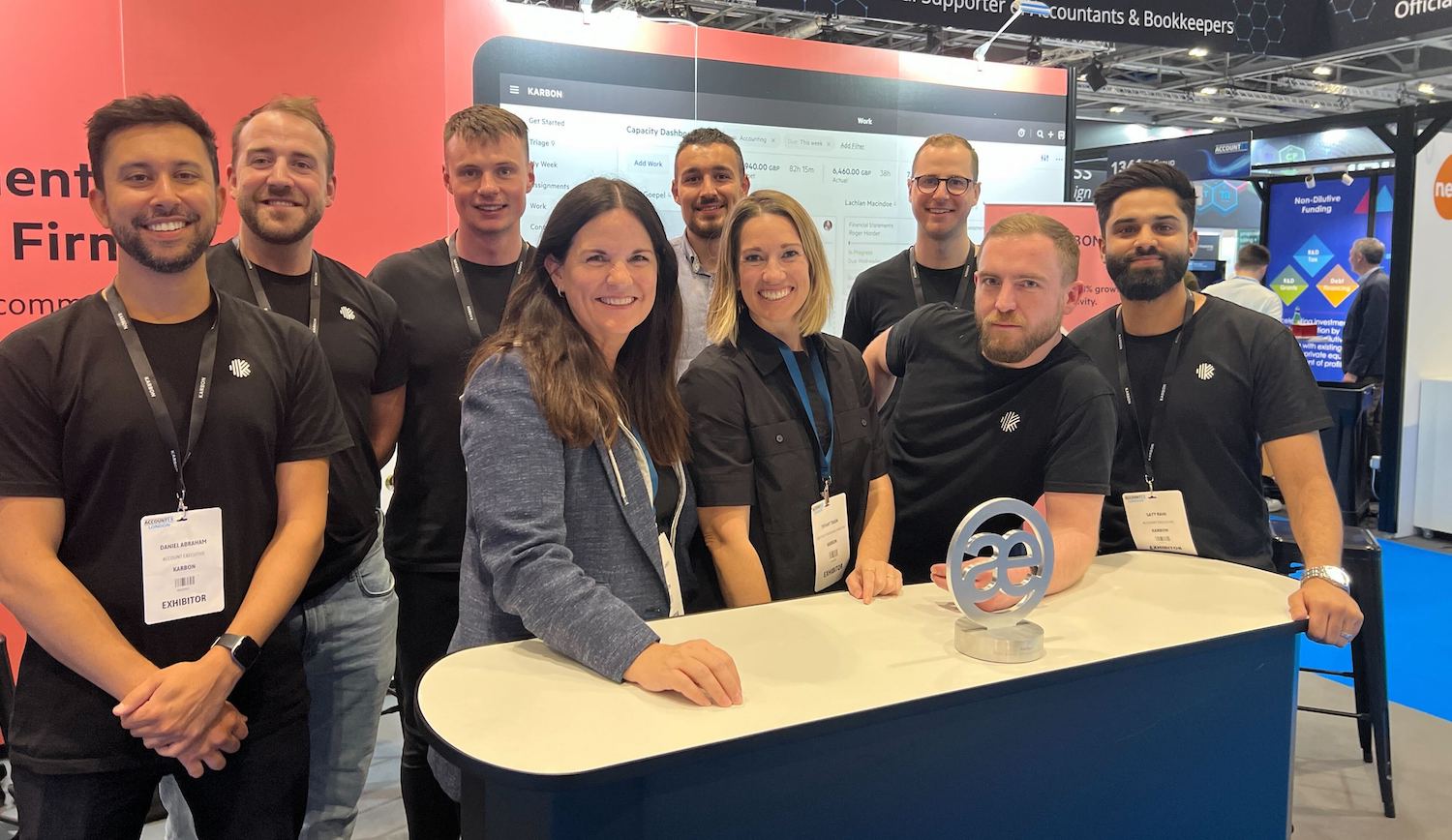
I was fortunate enough to attend Accountex London 2023 with some amazing Karbon team members, where I met some inspiring accounting leaders and customers.
It’s energizing to be surrounded by such digitally-progressive accountants as they lead the charge into a forward-thinking and tech-led future of accounting.
At the same time, I was surprised to learn that so much of the industry is not yet cloud-based, even after the pandemic pushed so many to finally make the shift. There’s a great opportunity for us here.
6. Having timely and transparent data combined with a North Star plan matters
I’ve spent a lot of time digging into the numbers to challenge key assumptions and identify meaningful trends. Doing so has helped our team to understand our potential and identify key levers to accelerate performance.
Of course, data is only useful when actually used. So it’s essential for everyone involved to understand the ‘what’ and ‘why’ of metrics and data points. Our data analytics team has made our formulas and assumptions more visible and accessible to all, and that’s a valuable asset.
Leveraging the data to build our North Star plan has also helped to unite the team around shared goals.
7. We have a great product (and room to improve it)
As CRO, I got to know Karbon’s marketing, sales, and customer teams very well. But I hadn’t spent much time with our engineering or product teams, so in my first 100 days I spent time getting to know them and gaining a deeper understanding of our tech stack.
I had a lot of ‘aha’ moments during my visit to Australia (where many of our product engineers and developers are) when discussing where to make investments that would really benefit our customers, investors, and employees.
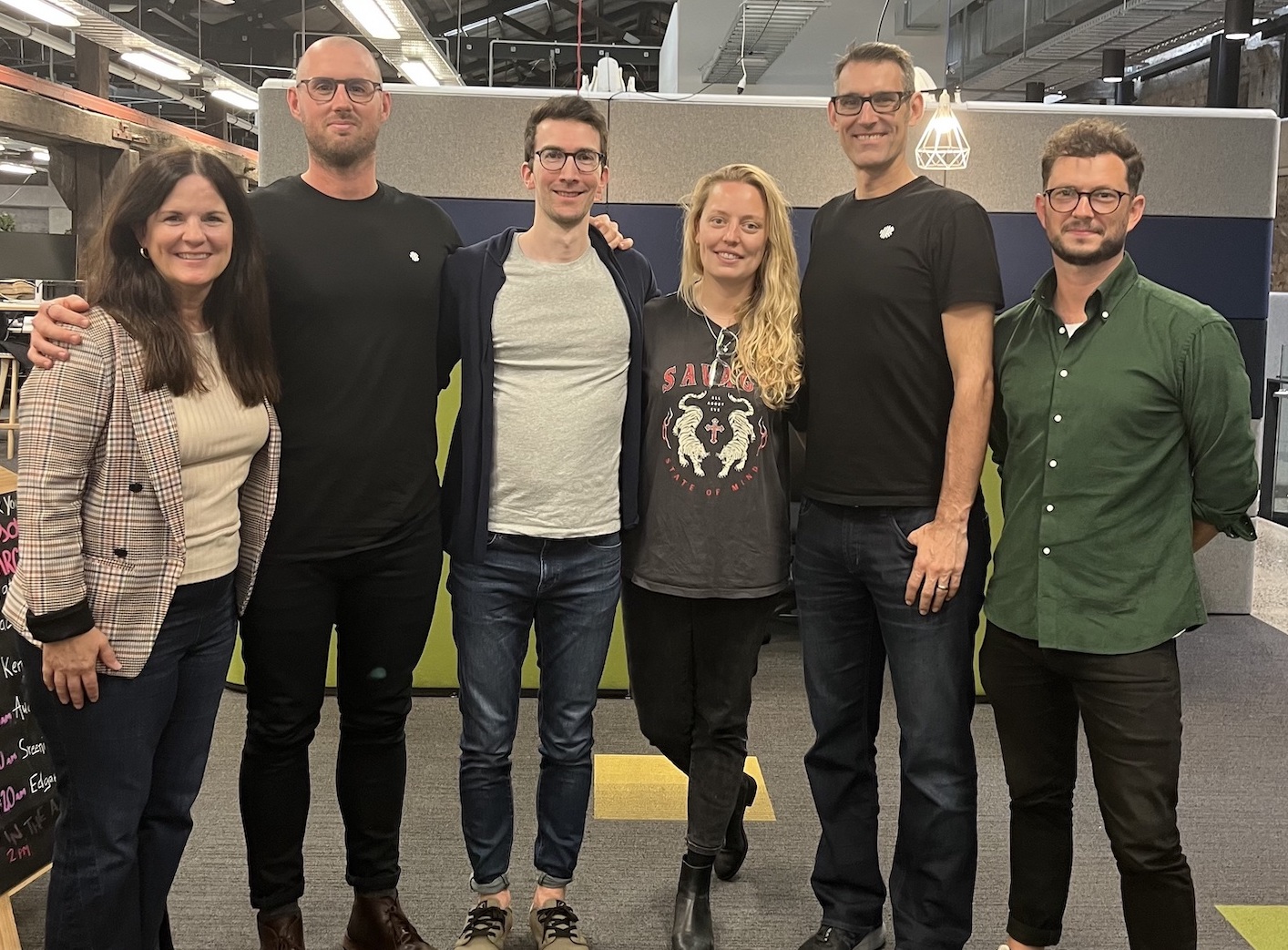
Meeting a few of our team down in Auckland, New Zealand was such a privilege.
One of my key takeaways was that the team has a solid plan on how to scale our platform and advance our offering. In my first 100 days, we spent time identifying how to fund additional investment in the product, which was approved recently by the board (more on the board shortly). I am looking forward to seeing enhanced investment in AI, API, core product, and the platform overall, which will benefit both our customers and employees.
8. Leverage your board and investors
Having a board is a gift, and I aim to leverage our board and investors further.
Whether it’s by benchmarking insights, connecting us with thought leaders at other companies or providing advice and insight on our key focus areas, I’m grateful for the significant value our world class board and investors offer to the organization. They bring deep experience in vertical SaaS and a history of scale-up success. Their insight has proved to be immensely valuable to me.
9. Simplify to execute
Focusing on one thing at a time brings clarity and order to any team. It’s easy to get overwhelmed by the 20 things you need to do and then fail to do any of them. With the help of my Chief of Staff Jessica McAndrew, who is a gifted project manager, we’ve taken each topic and narrowed it down to key projects with clear desired outcomes and corresponding timelines.
The two mantras we’re repeating as a company are “simplify, simplify, simplify” and then “execute, execute, execute.” We started the year with 140 OKRs and have cut those down to 10. Beyond that is, in my opinion, ineffective.
10. Take time for yourself
Karbon is a global organization. Because of this, I spend a lot of time at night meeting with our teams in Australia and New Zealand. I’ve learned to block off my morning to think and research, read, build strategy, or even just go for a walk. It’s important to get some time outside and reset my brain before I dive in for the day.
Ultimately, the most important thing I’ve learned is that I inherited a really strong team of talented people and a fantastic community of engaged customers.
We’ve got the people, we’ve got the product, we’ve got the culture: now it’s up to us to take Karbon to the next level. It is our responsibility to get Karbon into the hands of as many firms as possible so they (and their clients) can benefit from the value it provides.